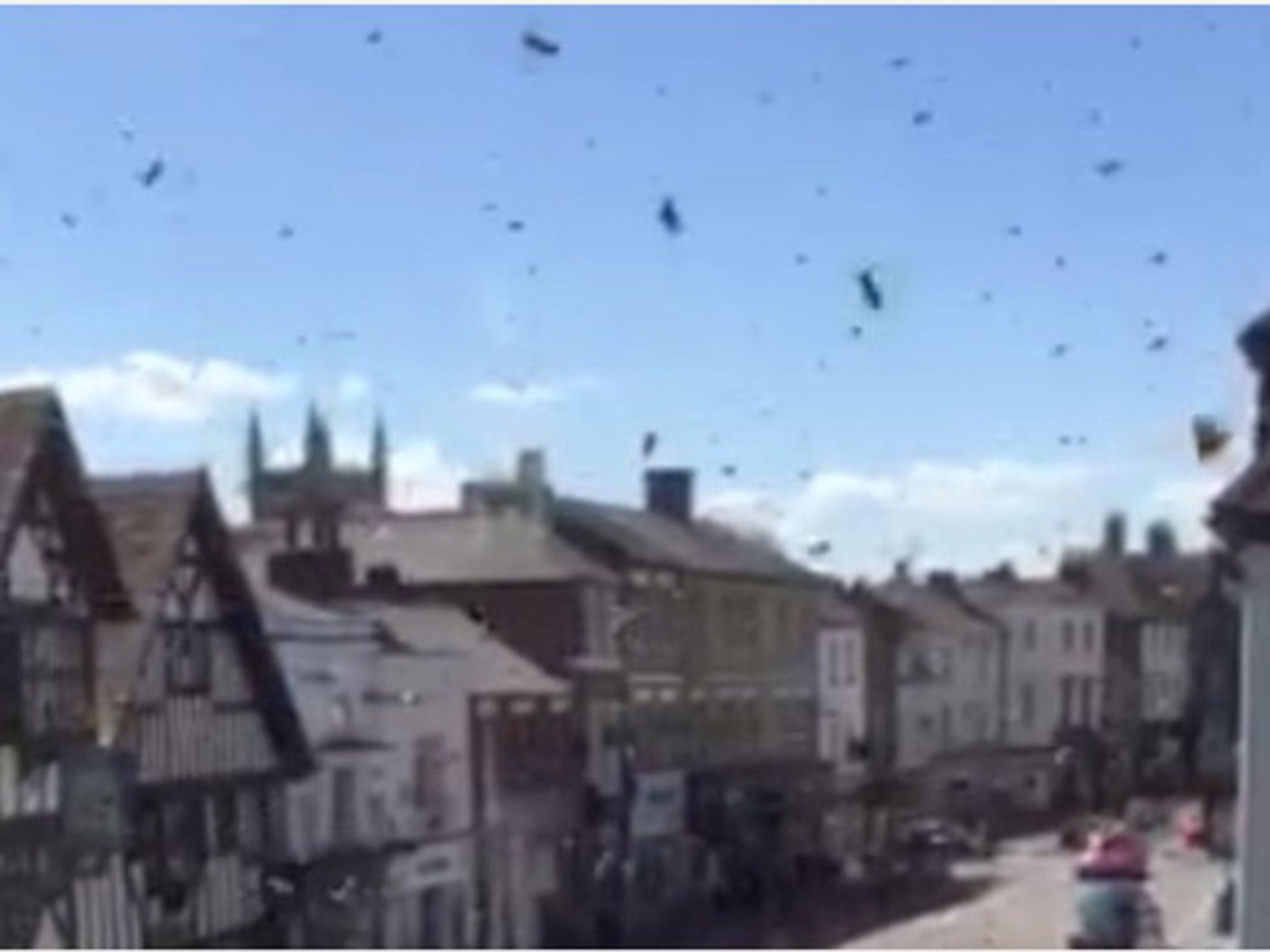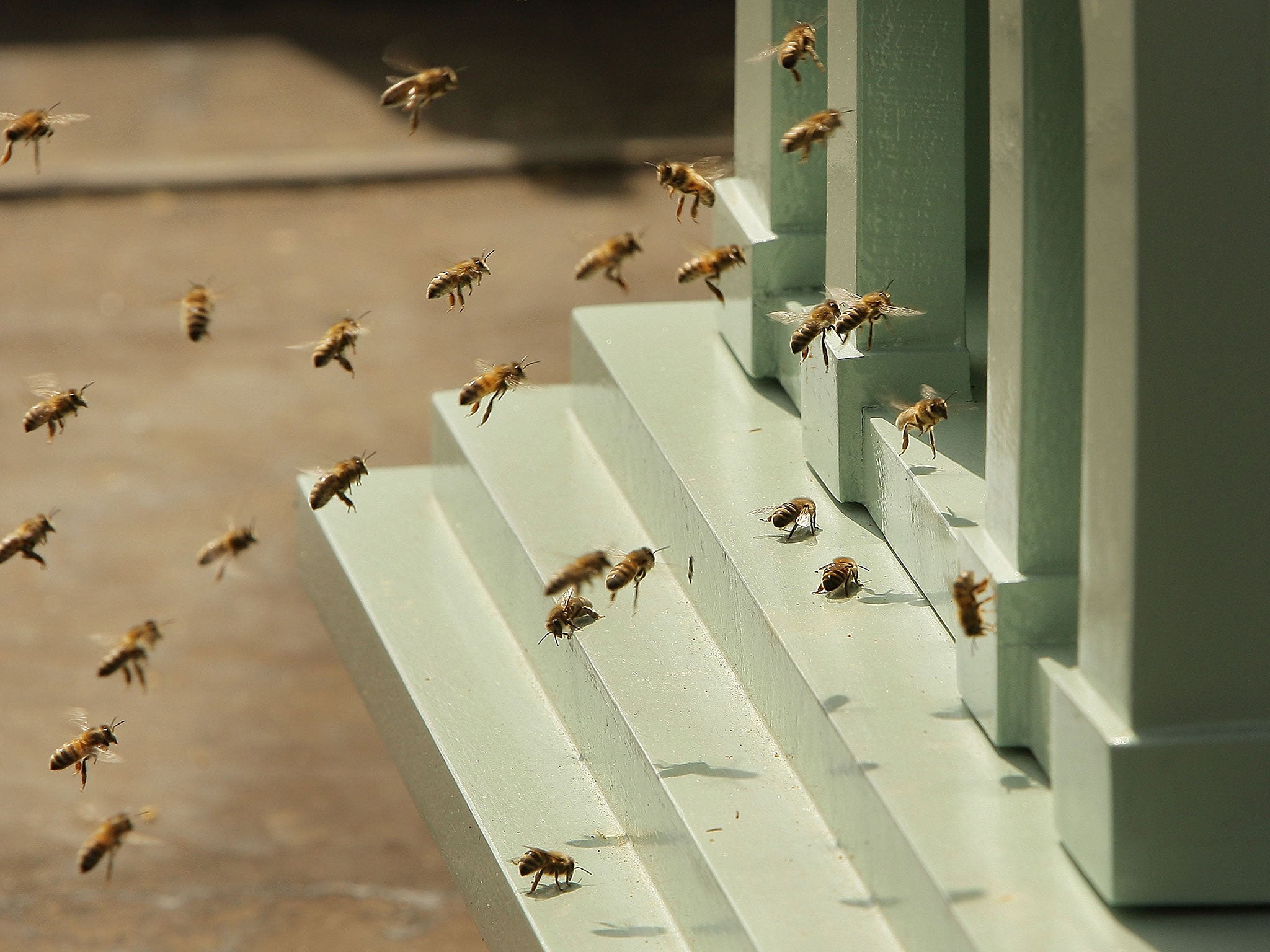Tens of thousands of bees invade the Surrey town of Farnham in 'biblical' swarm - video
Swarming is very common between the months of April and June and occurs when colonies outgrow their hives

In Ancient Egypt, it was crop-destroying of locusts.
In 17th century London, it was rats carrying the plague.
Now Farnham, Surrey, has been hit with its own “biblical" animal invasion after tens of thousands of bees converged on the town on Monday afternoon.
Speaking to local newspaper, Get Surrey, Swift said: "It was like something out of the Bible.
“We were all sitting there with the windows open as it was a hot day when a few bees flew into our office.
"I looked outside and the sky was black with bees, it was just extraordinary. Everyone slammed their windows shut.”
“People outside were running around thinking that the bees were chasing them, all the cars came to a stop,” said Swift. "It was like something from a horror movie. It was very spooky as there was no noise.”
Despite the descriptions of “blackened skies” and “biblical proportions”, Gill Maclean, spokesperson for the British Beekepers Association, said swarms like this are not “unnatural or unusual for this time of the year.”
Speaking to The Independent, Maclean explained that swarming was the “natural way of bees increasing their numbers.”

She said swarms occur when a hive becomes overcrowded and the number of bees outstrips the amount of space in the hive.
As a result, a new queen is produced and the old queen and as much as 20,000 worker bees are forced to look for an appropriate spot to set up a new colony.
According to Maclean, the main swarming season occurs between the months of April and June, the time when bee numbers build up in the colonies.
She advised anyone who comes across a swarm to contact a trained beekeeper so that they can collect the bees and transport them to a new beehive.
Click here to find out more information on bee swarms and where to find your local BBA registered swarm collector
Join our commenting forum
Join thought-provoking conversations, follow other Independent readers and see their replies
Comments